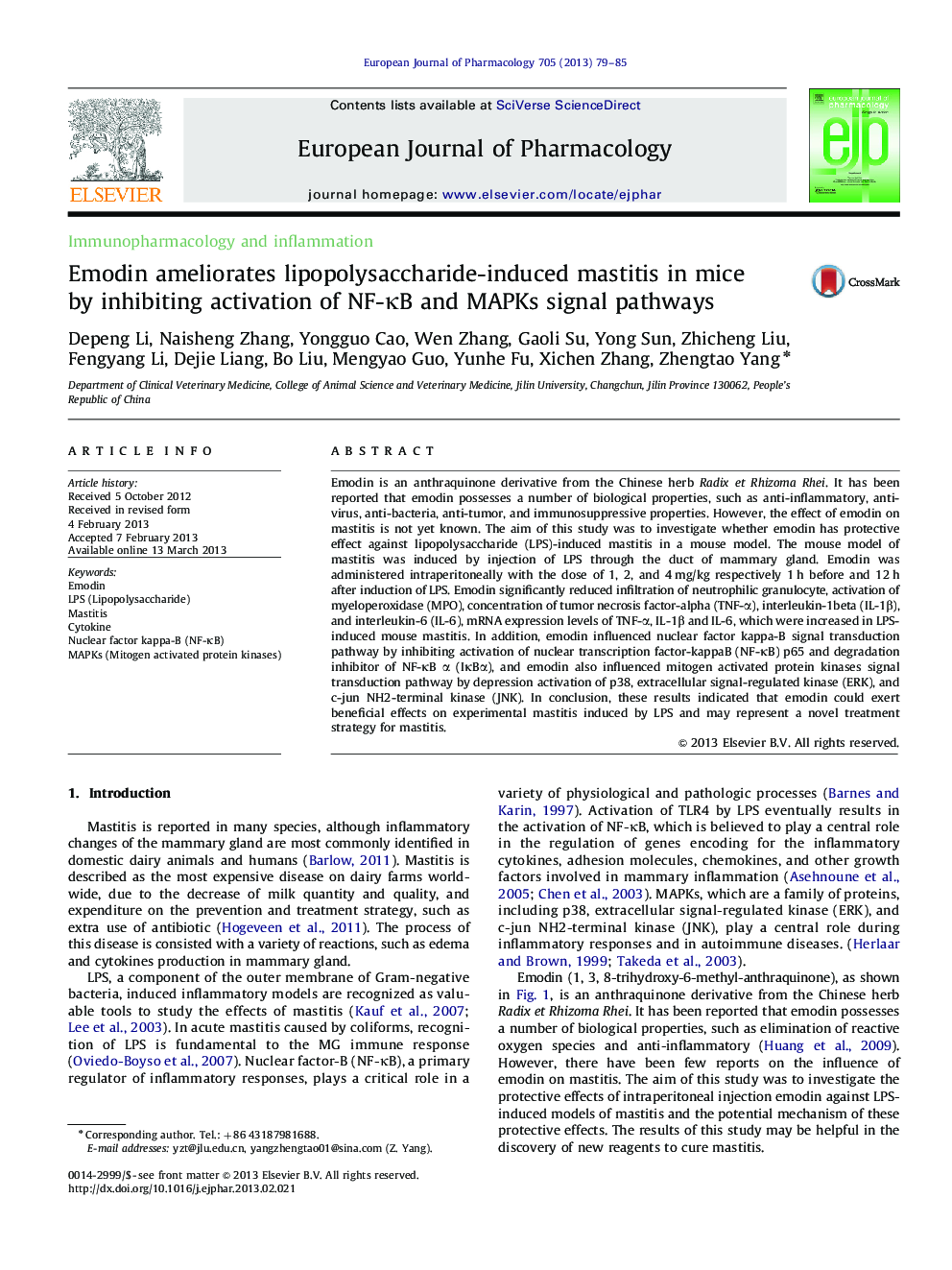| Article ID | Journal | Published Year | Pages | File Type |
|---|---|---|---|---|
| 2532232 | European Journal of Pharmacology | 2013 | 7 Pages |
Emodin is an anthraquinone derivative from the Chinese herb Radix et Rhizoma Rhei. It has been reported that emodin possesses a number of biological properties, such as anti-inflammatory, anti-virus, anti-bacteria, anti-tumor, and immunosuppressive properties. However, the effect of emodin on mastitis is not yet known. The aim of this study was to investigate whether emodin has protective effect against lipopolysaccharide (LPS)-induced mastitis in a mouse model. The mouse model of mastitis was induced by injection of LPS through the duct of mammary gland. Emodin was administered intraperitoneally with the dose of 1, 2, and 4 mg/kg respectively 1 h before and 12 h after induction of LPS. Emodin significantly reduced infiltration of neutrophilic granulocyte, activation of myeloperoxidase (MPO), concentration of tumor necrosis factor-alpha (TNF-α), interleukin-1beta (IL-1β), and interleukin-6 (IL-6), mRNA expression levels of TNF-α, IL-1β and IL-6, which were increased in LPS-induced mouse mastitis. In addition, emodin influenced nuclear factor kappa-B signal transduction pathway by inhibiting activation of nuclear transcription factor-kappaB (NF-κB) p65 and degradation inhibitor of NF-κB α (IκBα), and emodin also influenced mitogen activated protein kinases signal transduction pathway by depression activation of p38, extracellular signal-regulated kinase (ERK), and c-jun NH2-terminal kinase (JNK). In conclusion, these results indicated that emodin could exert beneficial effects on experimental mastitis induced by LPS and may represent a novel treatment strategy for mastitis.
Graphical abstractFigure optionsDownload full-size imageDownload high-quality image (412 K)Download as PowerPoint slide
